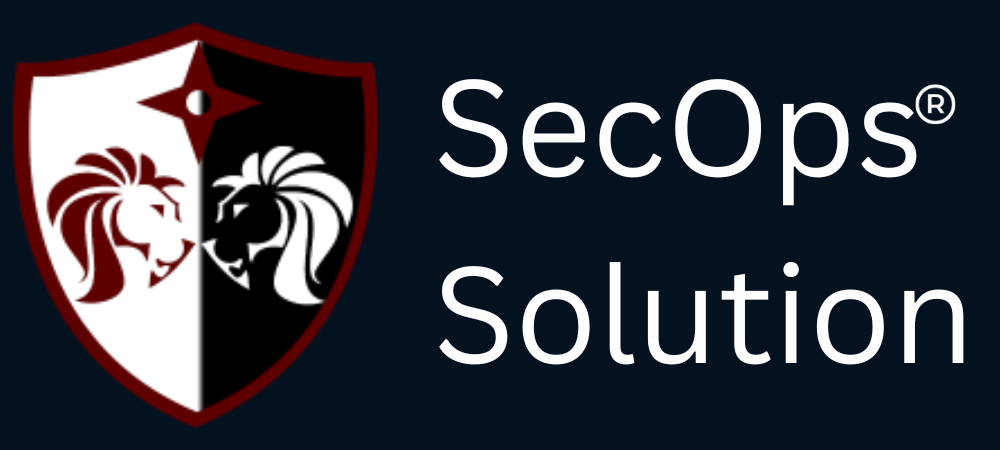
Agentless security for your infrastructure and applications - to build faster, more securely and in a fraction of the operational cost of other solutions

hello@secopsolution.com
.jpg)
As organizations strive to manage and leverage massive volumes of data efficiently, NoSQL databases have emerged as a powerful solution. However, with great power comes great responsibility, and in the digital age, this responsibility is synonymous with securing sensitive information. In this blog post, we will delve into the realm of NoSQL security, exploring why it is indispensable for businesses striving to maintain a competitive edge in the market.
Before we delve into the intricate details of NoSQL security, let's briefly revisit the essence of NoSQL databases. NoSQL, or "Not Only SQL," represents a family of database management systems that diverge from traditional relational databases in terms of structure and data models. These databases are highly scalable, capable of handling large volumes of unstructured or semi-structured data efficiently. Some popular NoSQL databases include MongoDB, Cassandra, and Couchbase.
NoSQL databases offer flexible schema designs, allowing for the storage of data without the need for a predefined schema. This flexibility is especially beneficial when dealing with variable or evolving data structures.
NoSQL databases are designed to scale horizontally, meaning they can efficiently handle increased data loads by adding more servers to a distributed database system. This makes them well-suited for applications with rapidly growing datasets.
NoSQL databases excel in terms of performance, particularly when dealing with read and write-intensive operations. They are optimized for specific use cases, providing faster query responses and improved overall system performance.
NoSQL databases support various data models, including document-oriented, key-value pairs, column-family, and graph databases. This versatility enables organizations to choose the most appropriate model for their specific application requirements.
Unlike relational databases that often require complex join operations, NoSQL databases typically avoid joins, simplifying query performance and enhancing scalability.
NoSQL databases can be easily horizontally partitioned, distributing data across multiple servers or nodes. This allows for efficient data distribution and retrieval.
Just like in traditional databases, NoSQL databases can be vulnerable to injection attacks. Attackers may attempt to manipulate queries by injecting malicious code, potentially leading to unauthorized access or data manipulation.
IDOR occurs when an attacker gains access to unauthorized data by manipulating references to objects within the database. This threat is particularly relevant in NoSQL databases with weak or insufficient access controls.
NoSQL databases may be targeted with DoS attacks, where attackers overload the system with requests, causing it to become unresponsive and disrupting normal operations.
Inadequate security measures may lead to unintentional exposure of sensitive data. This can occur through misconfigured access controls or weak authentication mechanisms, allowing unauthorized users to access confidential information.
Without proper encryption, data in transit or at rest within a NoSQL database may be vulnerable to interception or unauthorized access. Implementing encryption protocols helps mitigate this risk.
Weak or improperly configured access controls can result in unauthorized users gaining access to sensitive data. Regularly reviewing and strengthening access controls is crucial in preventing data breaches.
Several factors contribute to the rising popularity of NoSQL databases in business environments. The ability to handle diverse data types, scale horizontally, and provide flexible schema designs are among the key advantages cited by proponents of NoSQL databases. These features make them well-suited for applications dealing with the vast and varied datasets characteristic of modern enterprises.
As businesses embrace NoSQL databases for their data management needs, the importance of securing these systems becomes paramount. Strong security measures protect organizations from potential threats and vulnerabilities that could compromise sensitive information. NoSQL databases, just like any other digital infrastructure, are susceptible to various security risks such as unauthorized access, data breaches, and injection attacks.
Implement robust access control mechanisms to restrict unauthorized access to the database.
Utilize strong authentication methods, including multi-factor authentication, to enhance user verification.
Encrypt data both in transit and at rest to safeguard it from interception and unauthorized access.
Establish comprehensive audit trails to monitor and track database activities, helping in the identification of any suspicious behavior.
Keep NoSQL database systems up-to-date with the latest security patches to mitigate known vulnerabilities.
NoSQL security measures play a pivotal role in safeguarding customer data. A data breach can erode customer trust, leading to reputational damage that may take years to recover.
Adhering to data protection regulations is not just a legal requirement but also a key element of building a trustworthy brand. NoSQL security ensures compliance with industry-specific regulations governing the handling of sensitive information.
In today's highly competitive business landscape, maintaining a secure data environment is a differentiator. Organizations that prioritize NoSQL security are better positioned to protect their intellectual property, business strategies, and customer information, preserving their competitive edge.
While NoSQL databases offer numerous benefits, they also present unique challenges in terms of security. As the volume and complexity of data continue to grow, so do the potential attack vectors. Researchers and security experts are actively exploring advanced encryption techniques, anomaly detection systems, and artificial intelligence-driven security solutions to counter emerging threats in the NoSQL landscape.
In the era of digital transformation, where data is the lifeblood of business, NoSQL databases have become indispensable tools for organizations seeking to manage and derive insights from vast datasets. However, the benefits of NoSQL come hand in hand with the responsibility of securing these databases against evolving cyber threats.
NoSQL security is not merely a compliance checkbox but a strategic imperative for businesses aiming to thrive in the digital age. By implementing robust security measures, organizations can fortify their data infrastructure, protect sensitive information, and build a foundation of trust with their customers. As technology evolves, so too must our approach to security, ensuring that the data-driven future remains not only efficient but also secure.
SecOps Solution is an award-winning agent-less Full-stack Vulnerability and Patch Management Platform that helps organizations identify, prioritize and remediate security vulnerabilities and misconfigurations in seconds.
To schedule a demo, just pick a slot that is most convenient for you.